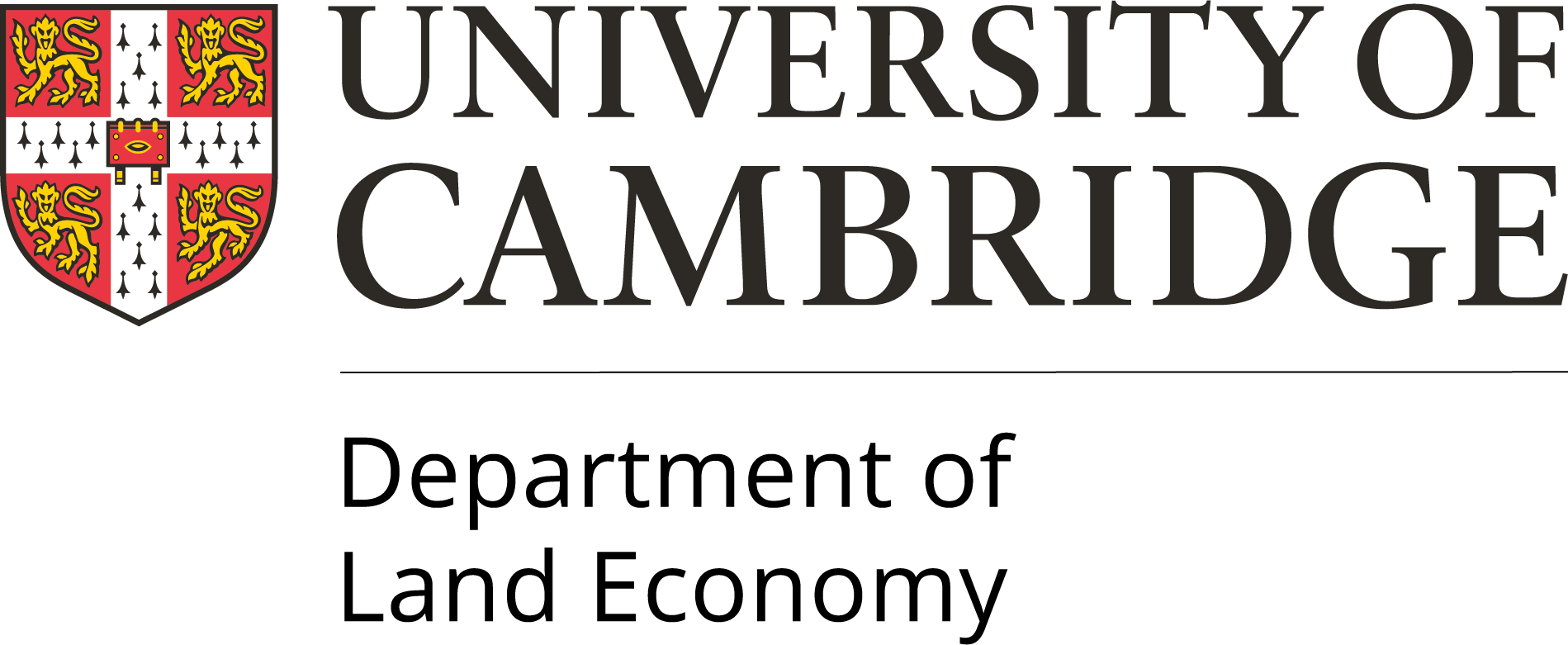Please note that Dr Li Wan is on sabbatical leave for Michaelmas Term 2025 and Lent Term 2026.
Academic profile
Professor of Planning, and Fellow of Gonville & Caius College. He is interested in spatial economic modelling of urban land use and transport systems. His current research projects include strategic planning at the city/regional level, evaluating the spatial economic impacts of transport decarbonisation and adaptation, and land value capture through development taxes and planning obligations. Dr Li Wan is a co-investigator of the Centre for Smart Infrastructure and Construction and of the UK National Hub for Decarbonised, Adaptable, and Resilient Transport Infrastructures, and a Trustee of the IJURR Foundation.
New report on UK Development taxes: Development taxes and levies: lessons from the past, ideas for the future (University of Cambridge & Town and Country Planning Association, 2025) New book on city digital twins: Digital Twins for Smart Cities: Conceptualisation, challenges and practices (ICE Publishing, 2023).
Dr Li Wan is accepting applications for PhD and MPhil in Land Economy Research. Dr Li Wan is available for consultancy. Website of Dr Li Wan's Research Group
|
Teaching
Tripos Paper 10 - The Built Environment PGR01 - Urban and Environmental Planning PGR02 - Urban and Housing Policy PGR05 - Place-based Policy RM03 – Spatial Analysis and Modelling |
Publications
Wan, L. et al. (2023). Digital Twins for Smart Cities: Conceptualisation, challenges and practices. ICE Publishing, London, 2023. Cua, J. C., & Wan, L. (2023). Modeling emission reduction benefits of the premium point-to-point bus service in Metropolitan Manila, Philippines – a scenario analysis. International Journal of Sustainable Transportation Quek, H. Y., … Wan, L. et al. (2023). The conundrum in smart city governance: Interoperability and compatibility in an ever-growing ecosystem of digital twins. Data & Policy Bastidas, V., … Wan, L. et al. (2023). Leadership for responsible digital innovation in the built environment: A socio-technical review for re-establishing competencies. Journal of Urban Management, (January), pp. 1–17. Tang, J., Wan, L. et al. (2022). Automatic number plate recognition (ANPR) in smart cities: A systematic review on technological advancements and application cases. Cities, 129(October), 103833. Tian, L., … Wan, L. et al. (2022). Mobility restrictions and their implications on the rental housing market during the COVID-19 pandemic in China’s large cities. Cities, 126(April), 103712. Wan, L. et al. (2022) ‘Digital twin implementations at the regional and city levels’, in Lu, Q. et al. (eds) Digital Twins in the Built Environment. ICE Publishing, pp. 305–344. doi: 10.1680/dtbe.65802.305. Li, L., & Wan, L. (2022). Understanding the Spatial Impact of COVID-19: New Insights from Beijing after One Year into Post-Lockdown Recovery. Lincoln Institute Working Paper. Wan, L. et al. (2021). Estimating commuting matrix and error mitigation: A complementary use of aggregate travel survey, location-based big data and discrete choice models. Travel Behaviour and Society, 25(June 2020), 102–111. Wan, L., Tang, J., Wang, L., & Schooling, J. (2021). Understanding non-commuting travel demand of car commuters – Insights from ANPR trip chain data in Cambridge. Transport Policy, 106(March), 76–87. Nochta T., Wan, L., Schooling J. & Parlikad, A.K. (2020) A socio-technical perspective on urban analytics: the case of City-scale Digital Twins. Journal of Urban Technology, 28(1-2), 263-287. Tang, J., Wan, L., Nochta, T., Schooling, J. & Yang T. (2020) Exploring resilient observability in traffic-monitoring sensor networks: A study of spatial–temporal vehicle patterns. ISPRS International Journal of Geo-Information, 2020, 9, 247. Nochta, T., Wan, L., Schooling, J. M., Lemanski, C., Parlikad, A. K., & Jin, Y. (2019). Digitalisation for smarter cities: moving from a static to a dynamic view. Proceedings of the Institution of Civil Engineers - Smart Infrastructure and Construction, 171(4), 117-130. Wan, L., Nochta, T., & Schooling, J. (2019) Developing a city-level digital twin–propositions and a case study. In International conference on smart infrastructure and construction 2019 (ICSIC) driving data-informed decision-making (pp. 187-194). ICE Publishing. An, Y. & Wan, L. (2019) Monitoring Spatial Changes in Manufacturing Firms in Seoul Metropolitan Area Using Firm Life Cycle and Locational Factors. Sustainability, 11(14), 3808. Wan L. & Jin Y. (2017). Assessment of Model Validation Outcomes of a New Recursive Spatial Equilibrium Model for the Greater Beijing. Environment and Planning B: Urban Analytics and City Science, 46(5), 805-825. Wan L. & An Y. (2017). Identifying the Growth Patterns of High-Tech Manufacturing Industry across Seoul Metropolitan Area Using Latent Class Analysis. Journal of Urban Planning and Development, ASCE, 143(3), 04017011. Wan L. et al. (2017). Big Data and Urban System Model – Substitutes or Complements? A Case Study of Modelling Commuting Patterns in Beijing. Computers, Environment and Urban Systems, 68, 64-77. Jin, Y., … Wan, L. et al. (2017). Environmental impacts of transformative land use and transport developments in the Greater Beijing Region: Insights from a new dynamic spatial equilibrium model. Transportation Research Part D: Transport and Environment, 52, 548-561. An Y. & Wan L. (2017). Modelling Industrial Firm Relocation with Impacts of Spatial Dependence. International Journal of Urban Sciences, 22(1), 80-103. Dai, L., Wang, S., Xu, J., Wan, L., & Wu, B. (2017). Qualitative analysis of residents’ perceptions of tourism impacts on historic districts: a case study of Nanluoguxiang in Beijing, China. Journal of Asian Architecture and Building Engineering, 16(1), 107-114. Policy reports Jin, Y, Denman, S. & Wan L. (2020). UK2070 Futures: Post-Covid Scenario Modelling Jin, Y, Denman, S. & Wan L. (2020). UK2070 Futures Modelling Technical Report |
Category/Classification
| Real estate and urban analysis group |

